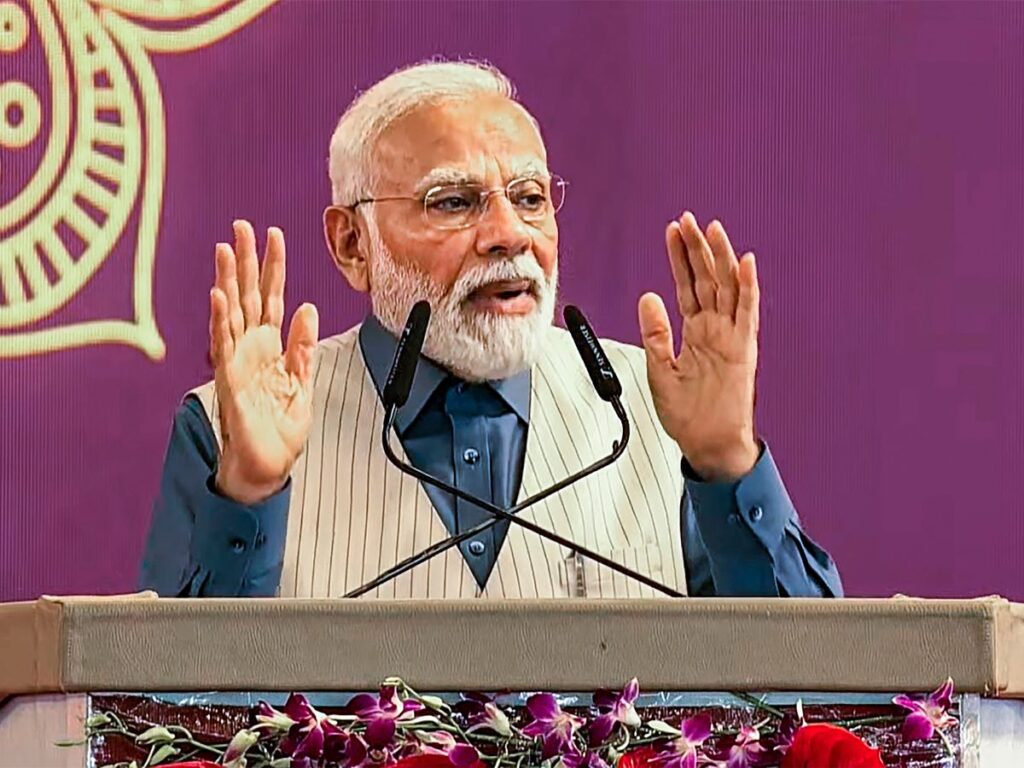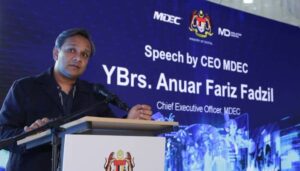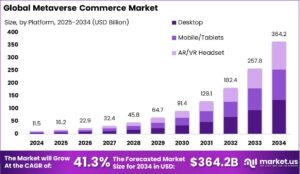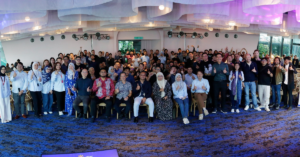In G20, India’s Words And Visions Are Seen By World As Roadmap For The Future: PM Modi

Prime Minister Narendra Modi has said that in G20, India’s words and vision are being seen by the world as a roadmap for the future, reported PTI. In an interview to the news agency PTI, the PM said that India’s visions are not merely ideas and that many positive impacts are coming out of India’s G20 Presidency. The Prime Minister also said that the GDP-centric view of the world is now changing to a human-centric view and that India is playing the role of a catalyst in it.
PM Modi said that India will continue constructive contribution well past the G20 Presidency, adding that G20 ministerial decisions taken across all domains will prove to be “pivotal” for the world’s future. “International community is convinced India’s progress not an accident, it’s result of action-oriented roadmap,” he said.
Addressing the issue of the Russia and Ukraine conflict, Prime Minister Modi again emphasised that dialogue and diplomacy are the only ways to resolve different conflicts in different regions. “Whether as G20 President or not, we will support every effort to ensure peace across the world,” the Prime Minister said.
PM Modi On India’s G20 Presidency
In the interview to PTI, Prime Minister Modi said that Africa is a top priority in G20 as “no future plan of earth can succeed without all voices being heard”. The effort towards greater inclusion for the Global South, especially Africa in global affairs has gained momentum, he added.
“Before we complete our G20 Presidency, over 1 lakh delegates will have visited India. They have been going to different regions, witnessing our demography, democracy and diversity. They are also seeing how a fourth D, development, has been empowering the people over the last decade. There is a growing understanding that many of the solutions that the world needs are already being successfully implemented in our country, with speed and scale.,” the Prime Minister said.
He said that inflation is the key issue faced by the world, and India’s G20 Presidency led to the recognition that anti-inflation policies in one country do not harm others. He added that India’s G20 Presidency also sowed seeds of confidence in countries of the third world.
Further, the PM said, all this will happen with the cooperation of the developed countries as “they are acknowledging the potential of the Global South more than ever before and recognising the aspirations of these countries as a force for the global good”.
“Once seen simply as a large market, India now part of solutions to global challenges,” the Prime Minister said, adding that the theme of India’s G20 Presidency ‘Vasudhaiva Kutumbakam’ is not just a slogan but comprehensive philosophy derived from our cultural ethos.
“Our domestic approach to address the most backward and neglected people is also guiding us at global level,” he said. Talking about India’s pitch for a global biofuels alliance, the PM said that it was aimed at creating options for developing countries to advance their energy transition.
“Over 1.5 crore Indians involved in year-long G20 programmes,” the Prime Minister told PTI. “We have democracy, demography and diversity and we have now added fourth ‘D’ i.e. development,” PM Modi added.
Talking about working as a Troika next year, he said, “We will still be part of the Troika over the next year which will ensure our continued constructive contribution to the G20 beyond our Presidency as well.”
He thanked Indonesia and President Widodo for their support to India during its presidency and pledged to work with the same spirit into the Presidency of Brazil next year.
PM Modi Rejects China’s Objections On G20 Meets In Srinagar, Arunachal
Prime Minister Modi also dismissed objections of Pakistan, China on G20 meets in Kashmir and Arunachal, saying “it’s natural to hold meets in every part of the country”.
Notably, China and Pakistan had objected to the decision to hold one of the events in Kashmir, which they call “disputed”.
“Such a question would be valid if we had refrained from conducting meetings in those venues. Ours is such a vast, beautiful and diverse nation. When G20 meetings are happening, isn’t it natural that meetings will be held in every part of our country,” the PM said in the interview to PTI.
‘Global Cooperation In Fighting Cybercrime Inevitable’
Prime Minister Narendra Modi also said that terrorists are using darknet, metaverse, as well as cryptocurrency to fulfill their nefarious aims which can have implications for the social fabric of nations. In an interview to the news agency PTI, the PM said that global cooperation in fighting cyber crimes is not just desirable but inevitable. Emphasising the threats cyberspace poses in the present days, the PM said that cyberspace has introduced an entirely new dimension to the battle against illicit financial activities and terrorism.
“Terrorists using darknet, metaverse, cryptocurrency to fulfil nefarious aims; can have implications for social fabric of nations,” PTI quoted the PM as saying.
Prime Minister said that cyber threats must be taken very seriously, adding “cyber terrorism, online radicalisation, money laundering just tip of iceberg”.
“Fake news and deep fakes can cause chaos and loss of credibility of news sources, can be used to fuel social unrest,” PM Modi said. He added that there is a need to achieve a comprehensive international convention on countering the use of ICTs for criminal purposes.
Climate Change: ‘Focus Should Not Be Restrictive, But Constructive’
Speaking on the issue of climate change, Prime Minister Modi said that the approach should not be restrictive but constructive, and added that one shouldn’t focus on “don’t do this or that”.
The prime minister said India has left no stone unturned in meeting its climate goals despite accounting for less than five per cent of the cumulative emissions.
“So, we are certainly on track while also tailoring in various factors needed to ensure growth,” he said, adding “We are perhaps the first among the G20 countries to have achieved our climate targets nine years ahead of the scheduled date”.
Praising India’s action against single-use plastic, he said it has been recognised across the world and has also made great strides in safe sanitation and cleanliness.
The prime minister said India has moved from being just a member of global efforts to playing a leading role in many initiatives.
“Our principle is simple – diversity is our best bet, whether in society or in terms of our energy mix. There are no one-size-fits-all solutions.
“Given the different pathways countries are on, our pathways for energy transition will be different,” the PM said to a question on progress on climate action targets in the post-Ukraine war era.
The PM said he was “extremely positive” about the future of the fight against climate change.
“We are working with other nations to alter the approach from a restrictive to a constructive approach. Rather than focusing purely on the approach of don’t do this or that, we want to bring in an attitude that makes people and nations aware of what they can do and help them with that, in terms of finance, technology and other resources,” he told PTI.
The prime minister said that despite the best intentions the discussions on climate change would end up revolving around who is to blame.
“But we took a positive and affirmative approach with a ‘can do’ spirit. We set up the International Solar Alliance and took the initiative to bring countries together under the vision of ‘One World One Sun One Grid’,” he added.
PM Modi said India also initiated the Coalition for Disaster Resilience so that countries across the world, especially developing countries, learn from each other and build infrastructure that is resilient even during disasters.
PM Modi Calls For Reforms In UN
Prime Minister Narendra Modi also called for reforms in the United Nations and said that the mid-20th century approach cannot serve the world in the 21st century. He said that international institutions need to recognise changing realities, relook at their priorities and ensure the representation of voices.
“Smaller regional forums will become more important if bigger multilateral institutions don’t change with time,” he said to PTI.
“Today’s world is a multipolar world where institutions are extremely important for a rules-based order that is fair and sensitive to all concerns. However, institutions can retain relevance only when they change with the times,” the prime minister said.
In the 80-minute interview, he said, “When this is not done on time, then smaller or regional forums begin to attain more importance.”
“The G20 is certainly one of the institutions that is being looked at with hope by many countries. Because the world is looking for actions and outcomes, no matter where they come from.”
Source link
#G20 #Indias #Words #Visions #World #Roadmap #Future #Modi





